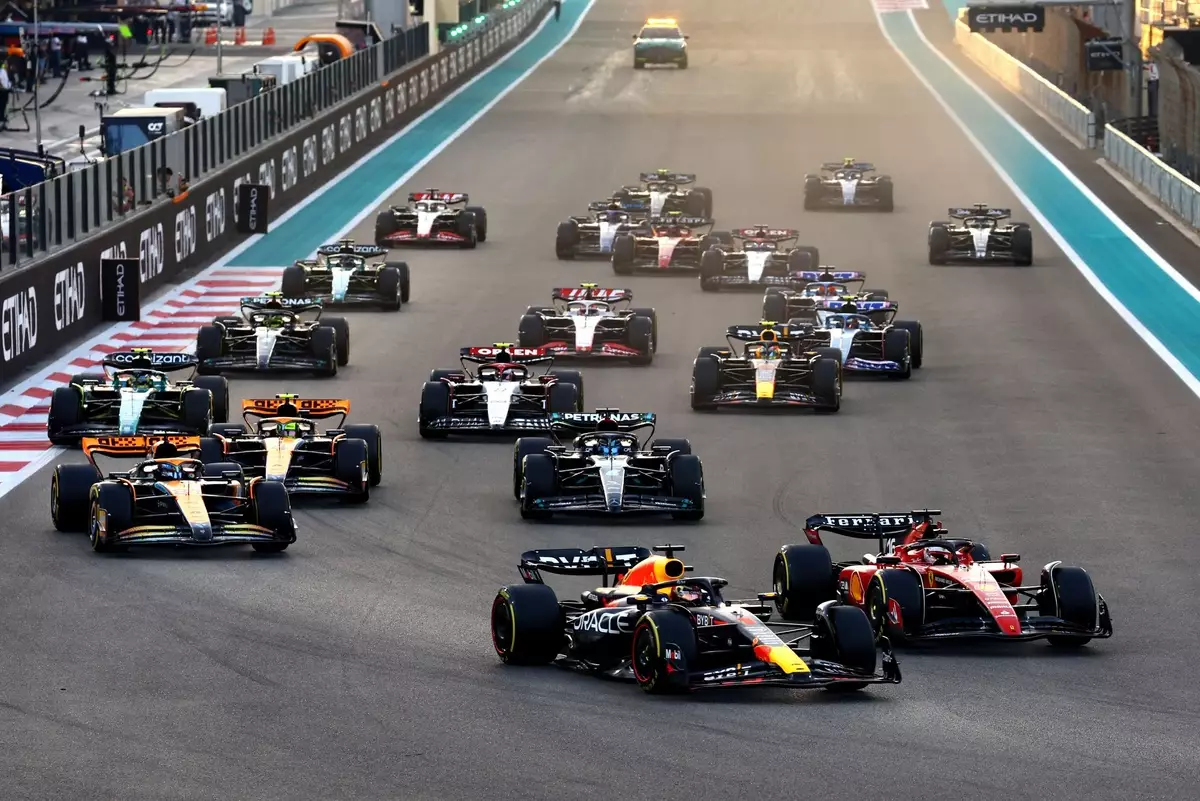In recent developments within the world of Formula 1, the proposed idea of hosting a rookie sprint race during the post-season testing in Abu Dhabi has been shelved. While it seems like a step forward intended to enhance the experience and readiness of novice drivers, the decision to abandon this concept highlights a mix of logistical challenges and the need for meticulous planning in an elite motorsport framework. This article will delve into the implications of this decision and what it signifies for the future of F1.
Originally, the introduction of a rookie sprint race was crafted with a clear purpose: to provide fresh talent in Formula 1 with valuable track time in a competitive environment. With the structure allowing for a ten-car sprint event immediately following the season-closing Abu Dhabi Grand Prix, the intention was to integrate a short qualifying session before the race, embedding this into the established post-season testing routine. However, despite the initial enthusiasm expressed by stakeholders, including teams and governing bodies, the plan was ultimately deemed impractical within the proposed timeline.
The benefits of such a race were backed by a consensus that more relevant experience in contemporary F1 cars is invaluable for rookie drivers. Yet, while the idea was met with applause, the collective decision to postpone underscores a harsh reality in motorsport: effective execution requires not just a great idea but also comprehensive groundwork.
At the heart of this decision lies the significant logistical challenge posed by the tight scheduling. Implementing a new race format, even in the guise of a test, demands precise coordination across myriad aspects—track availability, resource allocation, driver and team preparedness, and compliance with existing regulations. An F1 Commission meeting highlighted these issues and underscored the complexity of integrating new formats into established schedules.
In professional motorsport, where every second counts, the notion of hurried implementation can result in unintended consequences. There is an implicit understanding that each modification must be seamlessly woven into the fabric of the existing structure; anything less could compromise the very integrity of the sport. Therefore, agreeing to revise plans for the future allows the necessary room for thorough contemplation and meticulous planning, ensuring that the rookie race can be executed effectively when it does materialize.
The abandonment of the rookie sprint race is not an isolated incident but occurs concurrently with discussions around forthcoming regulatory changes for the 2026 season. During the same meetings, the F1 Commission tackled the intricate nuances of new technical regulations. While advancing aerodynamic capabilities for the cars reflects a forward-thinking approach, it is crucial to balance performance enhancements with safety and compliance concerns.
The accelerated pace of development and discussion reflects an evolving landscape where innovation must be balanced with practicality. Significant revisions in technical and sporting regulations suggest that Formula 1 is at a pivotal juncture, capable of reinventing itself while remaining steeped in the traditions that have characterized the sport for decades.
While the setback regarding the rookie sprint race may initially seem disappointing, the postponement illustrates a broader commitment to ensuring that any changes introduced are beneficial both for participants and the sport as a whole. As the Commission emphasizes their intent to focus on the 2025 implementation, the methodical approach taken can set a benchmark for how such initiatives should be evaluated in the future.
Moreover, the significant revamping of the 2026 regulations signifies a shift towards not just fostering competition but also enabling a diverse array of teams and manufacturers to thrive within this high-tech ecosystem. This commitment to financial sustainability paired with performance parity indicates a recognition of the evolving nature of competitive racing, where emerging players, such as Audi and Red Bull-Ford, seek to establish themselves among more established teams.
While the abandonment of the rookie sprint race is a tactical retreat, it signals the importance of thoughtful innovation in Formula 1. The sport’s decision-makers recognize that the seamless integration of new ideas requires more than enthusiasm; it necessitates a blueprint that spectators, teams, and drivers alike can appreciate and trust. Going forward, these insights and adjustments could ultimately foster a more robust future for Formula 1 racing.


Leave a Reply